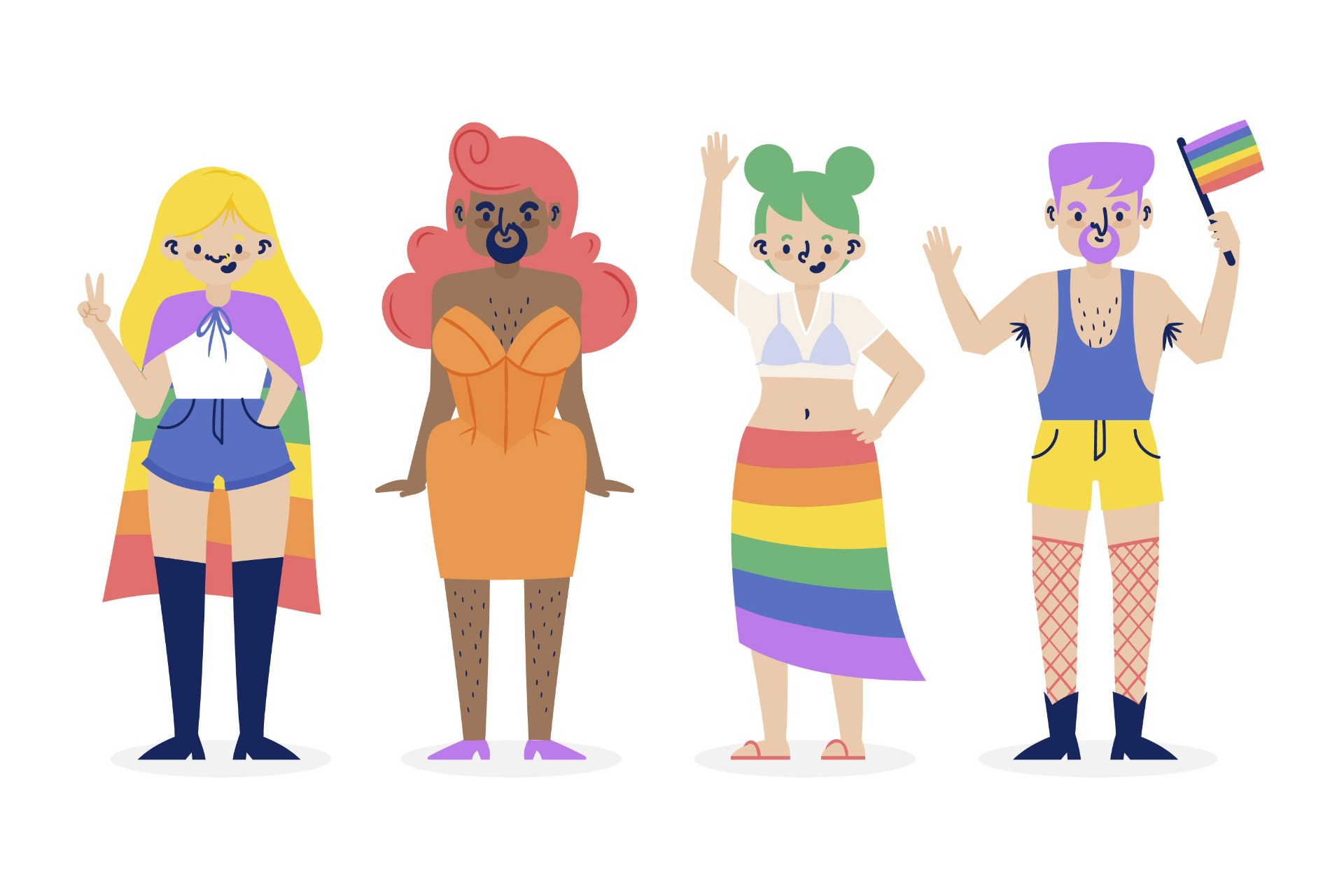Living in Full Spectrum: Embracing Self-Expression and Creativity in a Heteronormative World
Discovering and embracing one's sexual orientation is a deeply personal journey. Some have no doubts whatsoever in who they are and what they want. Most of these people though, are straigth and cisgender. There are others, scattered around what is the LBTQIA+ spectrum, desperately trying to figure out their identity.
Labels, it's quite a controversial topic within the community. Some feel like they need to put a label on themselves in order to fully understand who they are, or to find other people with similar experiences and thus to feel less alone in how they feel, how they work. Others however, tend to swear off labels. They feel like it's too difficult to pinpoint who they are and that it puts you in boxes, brings restrictions, which is something that needs to be avoided.
I tend to label myself as bisexual and demisexual, however I still have doubts about both from time to time. I'm here to tell you how normal that is. Sexuality, gender, it's all as fluid as can be. Change your label, don't use labels, experiment, try them out. Just do as you please without taking into account what other people might say.
After all, there's only one person who can tell you who you are (and that's me, Sue Sylvester).
My personal journey was definitely not without its fair share of doubts, confusion and even self-hatred. I want to share my experiences, challenges and moments of self-acceptance as I navigated the complex intersection of being both bi- and demisexual.
The Puzzle of my Identity
From an early age, I, as many before me, realized that my experience of attraction was different from what society often portrayed as the norm. In high school, quite honestly, I genuinely thought everyone was just faking it. Like, you think someone being pretty is a good enough reason to just ... do stuff with them? You don't even know who they are, what they're like? I struggled to connect with the idea of instant, superficial attractions. I shoved those feelings deep down, and figured maybe I was simply a late bloomer, or maybe I wasn't attracted to men? My focus shifted, and I realised that I was just not attracted to anyone. Not in the way people around me were. I could look at someone and think they were pretty but that thought never brought me anything else. So, I decided right then and there that I was just incapable of love and sex and all that comes with it. It made perfect sense, I was never really an affectionate kid. At sixteen, I silently labeled myself for the first time. I must have been asexual.
Battling Doubts and Society's Expectations
As I started to identify as asexual, I faced many doubts from both myself and those around me. Not directly though, as I never actually came out to anyone at that time. Society just often dismissed or invalidated relatable experiences people shared. Experiences that don't fit into established norms. I questioned the validity of my feelings, wondering if I was just seeking attention or being overly sensitive. Maybe, I just needed to get things over with. But I couldn't. It was a challenging period of introspection and self-reflection.
The Bisexual Paradox
In addition to grappling with my asexuality, I discovered that despite my lack of attraction to people, I could form intense bonds with people of all genders. Once I had that connection with someone, suddenly I felt like maybe I could be attracted to this person? I didn't really think about sex right away, but the idea of physical affection was - for the first time ever - not scary. This realization added another layer of complexity to my journey. Society's misconceptions and stereotypes surrounding bisexuality led me to question whether my "attractions" were valid or if I was just going through a phase, or trying to make myself believe I could feel attracted to anyone just to make myself feel something. Self-acceptance seemed elusive as I battled both internalized and externalized biphobia. I came out to myself a second time then: I was bisexual, and as later first experiences showed me, also demisexual. I can feel sexual attraction after all, so long as I'm in love. And that does not happen easily.
Self-Hatred and the Path to Healing
The doubts and self-hatred that accompanied my journey were significant obstacles to overcome. I struggled with accepting myself, often feeling isolated and misunderstood. However, I slowly started to dismantle this toxic mindset by educating myself, seeking support from understanding friends and communities. Through all of these, I learned to embrace my identity fully. Acceptance came with aknowledging the validity of my experiences and understanding that there is a beautiful diversity in human sexuality.
Now, by sharing my story, I hope to reach others who may be going through a similar struggle. I want to offer reassurance and remind them that they are not alone. I'm sure this is not the first place you've read something like this, but as a wise man once said: "Every time someone steps up and says who they are, the world becomes a better, more interesting place."
